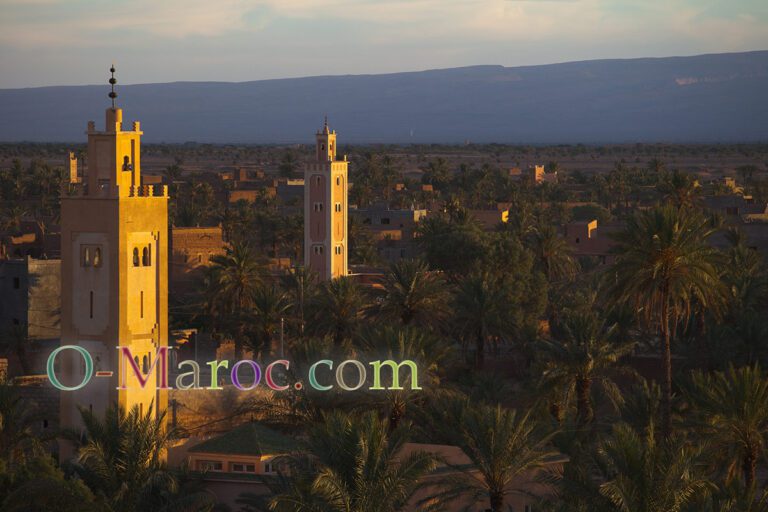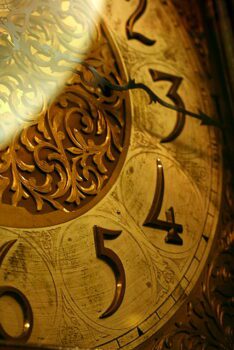
Every year, I tell you how much you can travel during Ramadan, and that holidays in Morocco during this period are a little different and enriching.
So as not to repeat myself like a parrot, this year I’m going to tell you about daily life during Ramadan, which you probably won’t know if you’re just here for a week’s holiday or two. Suddenly, since 2 August, the rhythm of life has been completely transformed.
The day is marked by three cannon blasts: two in the morning, one hour before the start of the fast and at the moment of fasting (S’hour), and one in the evening, at the end of the fast (F’tour). As our Ramadan 2011 takes place in the middle of summer, the nights are short, and many Moroccans eat just two meals, a long F’tour at the break of the fast, and a solid S’hour. In winter, the pattern is more like three meals, a proper dinner around midnight and a light S’hour.
Too short a night to sleep
Here in Ouarzazate, S’hour is around 4.15am, and the fast is broken at around 7.30pm. (At the end of the month, you will have saved three quarters of an hour on the total duration of the fast, which is not insignificant).
There are several ways of organising cooking, either all in advance, or ‘normally’ before each meal (food during Ramadan will be a separate post), but roughly speaking, to be ready to prepare a full meal, then the prayer (which takes, between the ablutions and the prayer itself, at least a quarter of an hour), you need to be at the table at around 3am and therefore, for the cook (the cook more rarely), at the stove at around 2am, 2.30am at the latest.
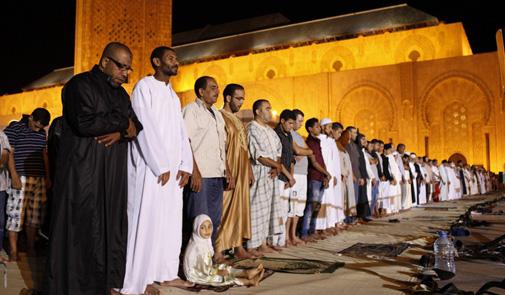
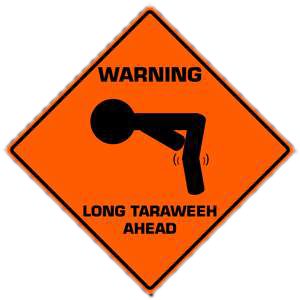
Going backwards, the previous day’s F’tour was followed by a long prayer at the mosque, at least an hour, more depending on the imam (as with Christians: there are priests who dispatch the sermon in ten minutes, and others who are very talkative), or a quiet rest, for those whose practice stops at observing the fast. In short, we’re back to normal life by 10pm. The shops are open and families are out enjoying the cooler air for another hour or two.
So we get very little sleep and, especially in the south where the heat is exhausting during the day, where the rhythm is naturally nocturnal, there are many Moroccans who pull an all-nighter.
Adjusted working hours
Depending on whether you’re a blue-collar worker, a craftsman or an office worker, the layout will be different.
We live in a new district, under construction, and the workers are on the scaffolding as soon as there’s enough light to work, around five in the morning. I usually go out at dawn and sit on the doorstep to enjoy the freshness, the calm and the slow start-up.
As I’m not fasting, I’d like to enjoy my coffee and orange juice, but I live here, and that could be taken as provocation… or simply to make fasting more difficult for those who, just a few metres away, are going to be climbing walls and sweating under a blazing sun (the ‘official’ weather forecast was 40° today, which could be 10 more in the middle of a heat wave).
The offices and administrations work a continuous, shortened day, from 9am to 3pm. Before our assistant arrives, I have a little ‘siesta’, while my husband has gone to sleep, if he can. If it’s suk day, or he has something to do, he leaves like everyone else, as early as possible, and then comes back before the end of the morning.
As the hour advances and the temperature rises, the silence is more and more universal, even the children don’t play outside, and the animals hide too. Outside the tourist areas, or those that are really busy, it’s almost like being in a deserted city. On the main avenue Mohamed V, a few cafés and restaurants are open for tourists, but are running a little empty. Others are closed, leaving their tables and chairs on the terraces. Moroccans sit there to pass the time, without ordering anything.
Only the food shops are really working. There’s always something missing…
Preparing the Ftour
The day before yesterday I saw a tweet around 6pm addressed to Moroccan women: “If you’re on twitter at this time of day, either you’ve got maids or you’re single”. A good description of reality, around 5pm people start to prepare the F’tour, the harira, the little cakes, the coffee, the tea, and everything else that will overload the table. The women are in the kitchen, the men are lying down, either resting or sleeping, and most of the shops in the street have closed.
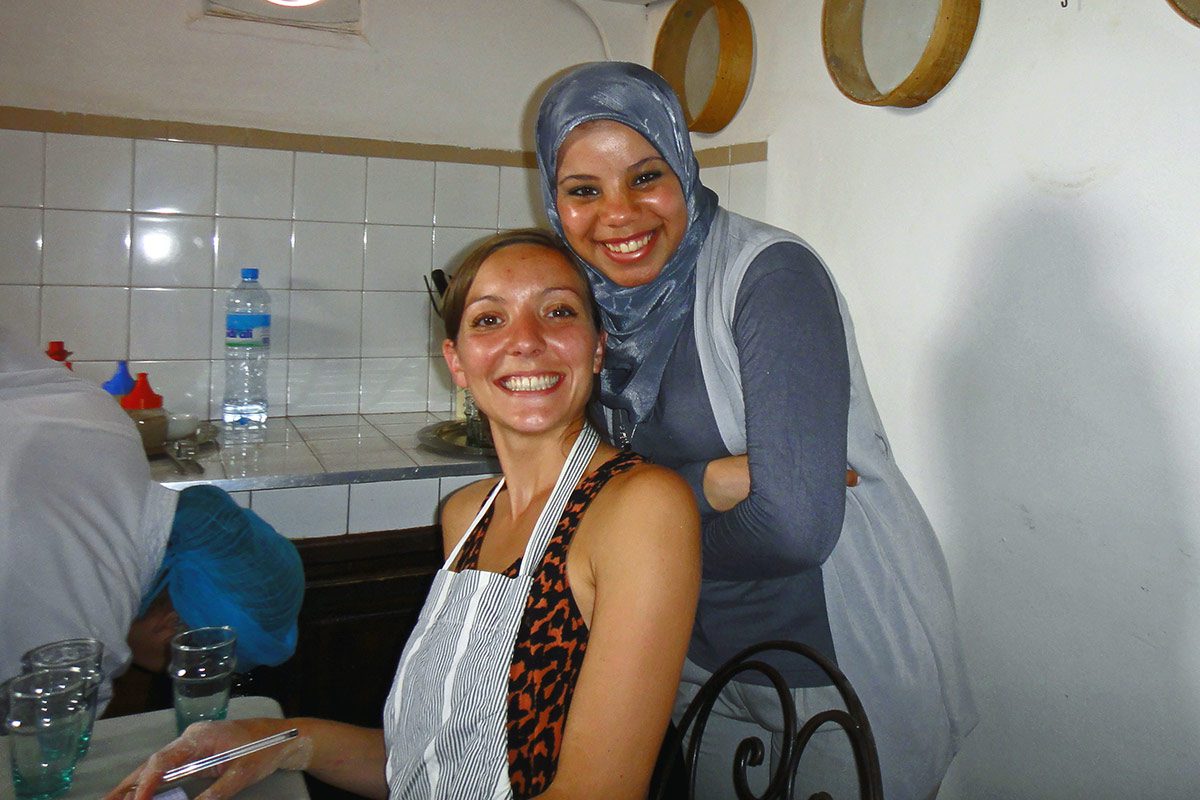
This is the moment when your friends or family call to ask you to share the blessing of breaking the fast (the F’tour is not an insignificant moment, it is one of the essential moments of the Ramadan ritual, and in this sense, sharing it is a blessing, and even more so if you share it with poor people).
Half an hour before the F’tour, the stress becomes palpable. People are now awake, it’s no longer the time to ask a taxi to take you somewhere, you look (surreptitiously or not) at your watch, you turn your head in the direction of the mosque, where the muezzin’s call will come from, or you check once, twice, on the official timetable sheet, what the exact minute is for breaking the fast.
The table is set, the food is protected from flies under cloths, often embroidered, and the coffee pots, teapots and tureens are brought in, steaming. Whey is poured into the glasses…
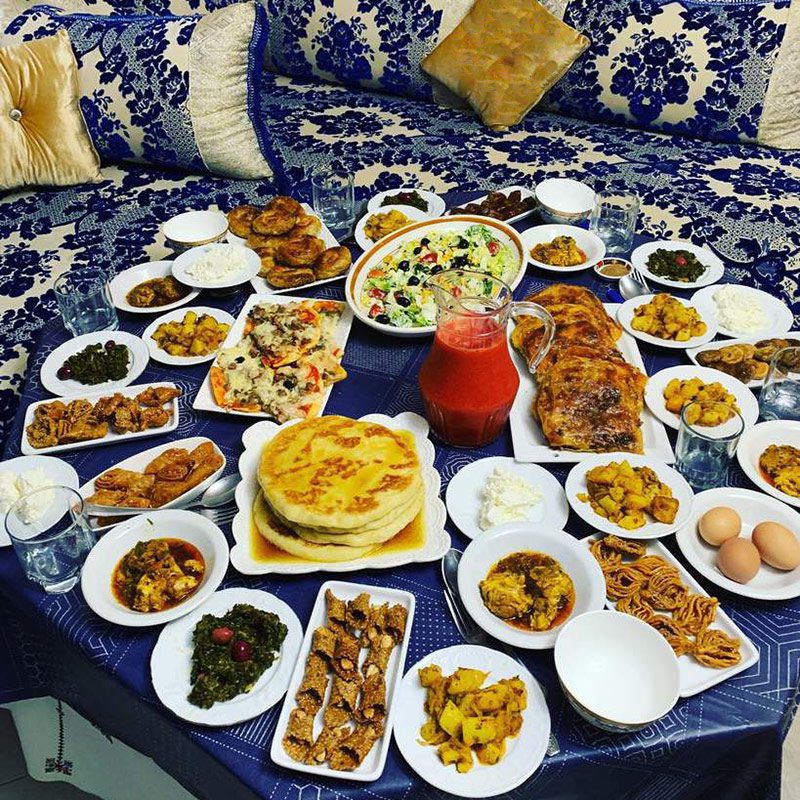
The minute arrives, you hear either the muezzin or the cannon. The head of the family takes the first date with his milk, inviting everyone to follow his example with a “Bismillah”.
A day of fasting has just ended.
Working with foreign companies
For those of us who work with Europe, things are a little more complicated. Morocco has abandoned its summer time, so we have a two-hour time difference, which means that officially, our offices are only open from 11am Paris time, and we (with the exception of ‘I’) are totally unavailable from 5pm to 6.30pm. Difficult or even impossible to manage.
What’s more, despite the officially reduced working hours, it’s difficult to say to our customers “at the moment we’re at 60% production capacity [50% actual, at the most, with fatigue], so we’re running late”. And then when one of our customers has a request for an excursion, a holiday… we’re not going to ask them to wait until after Ramadan.
This means that in addition to the Ramadan timetable, the afternoon “quiet break” – the one that all our employees wait for around 3pm – moves to late, and we are actually doing a normal day’s work.
A dual-religion couple’s timetable
My husband fasts for Ramadan, not me.
If I didn’t adapt to his schedule, our life as a couple would be reduced to a shambles, as our hours of sleep and availability don’t really coincide.
Every year, I adapt my eating habits so that I can nibble a little during the day and share his meals with him (if I ate normally during the day, my calorie intake would be impressive).
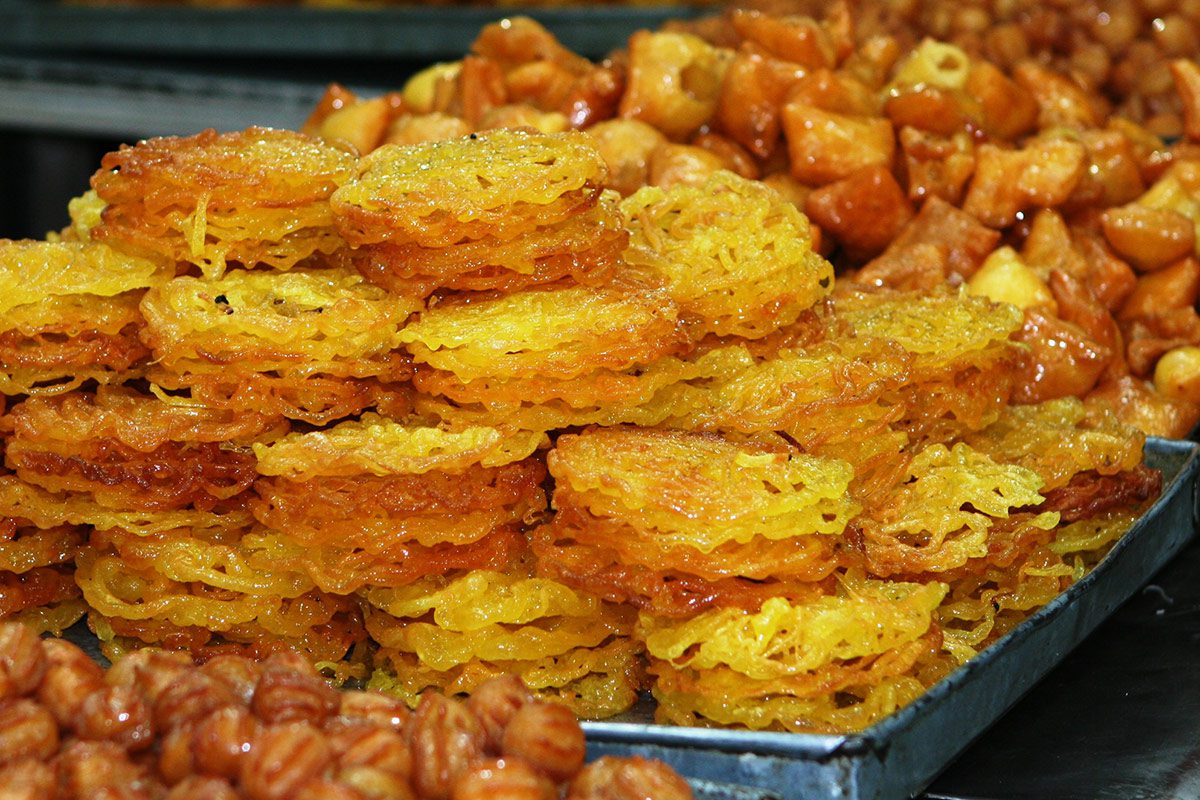
I also make sure that all the cooking doesn’t fall on him (although he cooks very well), I take care of the site, the tours… in short, I end up sleeping very little!
That’s when you realise that living as a couple with two different religions is not just a question of intellectual tolerance, but of adapting to mutual constraints, which can be difficult to negotiate. At the time we met, Ramadan fell in October… so we still have twenty years to imagine how we’ll manage when Christmas and New Year’s Day fall at the same time as Ramadan (in 2031)!
 A typo or syntax error? You can select the text and hit Ctrl+Enter to send us a message. Thank you! If this post interested you, maybe you can also leave a comment. We'd love to exchange with you !
A typo or syntax error? You can select the text and hit Ctrl+Enter to send us a message. Thank you! If this post interested you, maybe you can also leave a comment. We'd love to exchange with you !

